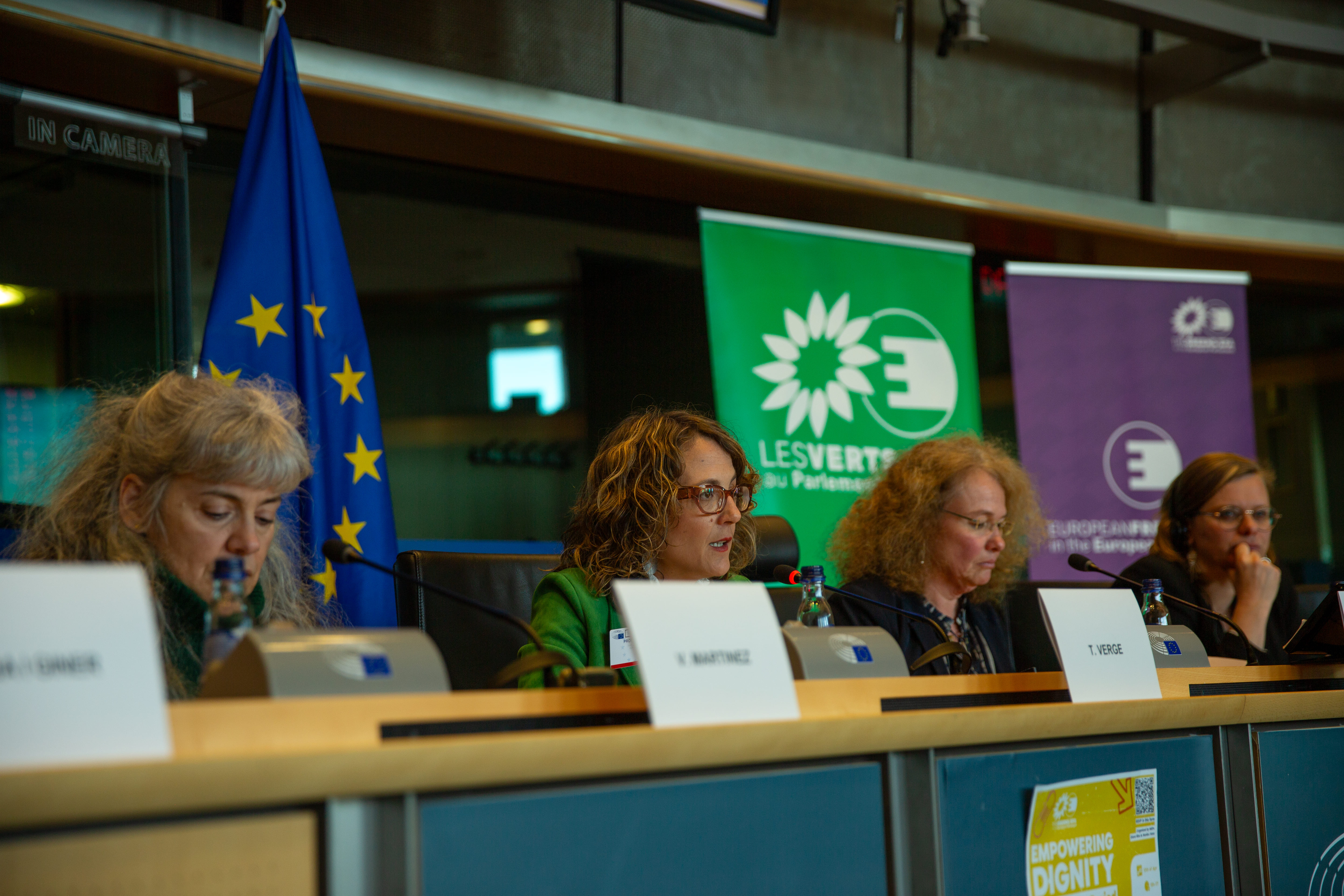- In one month, over 320,000 reusable menstrual products have been distributed throughout Catalonia.
- Minister Verge explained the implementation of the pioneering measure before representatives from European institutions and all levels of government.

The Minister of Equality and Feminisms,Tània Verge Mestre, has participated this Wednesday in a conference on menstrual poverty titled "Empowering Dignity: Addressing Period Poverty in the EU" held at the European Parliament in Brussels, organized by the parliamentary group of the Greens-European Free Alliance.
The Equality and Feminisms Minister explained to the Eurochamber the deployment of the"My Period, My Rules"action, consisting of the free distribution of reusable menstrual products, emphasizing its role in social justice, gender justice, and climate justice. Additionally, she highlighted the inclusive nature of the measure aimed at all menstruating individuals regardless of their condition.
This campaign, as Verge recalled,targets 2.5 million womenwho already have access to reusable menstrual products at over3,000 pharmacies in Catalonia.Specifically, over half a million women have generated the necessary QR code to access the products, and over320,000 womenhave already approached their preferred pharmacy to collect their preferred product, whether reusable pads, a menstrual cup, or menstrual underwear.
The Minister explained that "My Period, My Rules" is part of the Catalan Government's National Strategy for Sexual and Reproductive Rights, which focuses on ensuring comprehensive sexual education and menstrual equity for all women and menstruating individuals, among other rights.
Tackling a National Matter
The Minister highlighted that menstrual poverty affects one in five women in Catalonia. Specifically, she recalled that"23% of women in Catalonia cannot afford menstrual products, and are either using unsuitable products such as toilet paper or reusing single-use products with the impact that this has on health. 44% are using products that are not their first choice."
This situation has detrimental consequences for health and well-being and causes problems in daily life (at school, at work, and during leisure time). Using single-use products for a longer period than recommended can lead to infections that negatively affect health. Additionally, the stigma and misinformation surrounding menstruation lead to other limitations.
Furthermore, Verge emphasized that it is an environmentally friendly measure that minimizes waste generation, as it involves reusable menstrual products."These are products with a lifespan of between 5 and 10 years, thus contributing to the fight against the climate crisis and generating more savings precisely due to the duration of these products,"the Equality and Feminisms Minister assured.
Verge participated in the roundtable discussion "Fixing Period Poverty in Europe" alongside Barbara Huemer, representative of the Vienna City Council, Judit Waller-Fekete, head of Social Inclusion and Support Services at the Hungarian Red Cross, and Veronica Martínez, Director of BruZelle, an association against menstrual poverty and taboos.